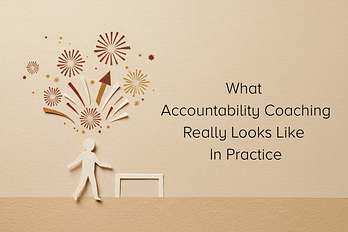June 15, 2021 - Coaching Business
How to write your own coaching agreement
Mitigate risks in coaching by utilizing a coaching agreement. Safeguard your practice like any other profession with this essential step.

Coaching is no different than any other profession; it comes with its risks which we need to mitigate. To stay safe it’s best to provide a coaching agreement, engagement letter or contract to make sure the terms are clear before you start.
The first thing to think about is the kind of complaints or claims your clients could make. Often as coaches, we promise an outcome that may not be achieved due to the client not adhering to our process or taking action.
Manage Your Coaching Practice in One Place
CoachVantage automates your business workflows so you can focus on impactful coaching results.
Sometimes, clients may also misunderstand our promises and have skewed expectations. The more clients you have the higher the chances of encountering situations like this. An agreement will protect you against being sued and losing money.

-
Coaching Agreement Disclaimer
The agreement needs to contain a disclaimer. When marketing or selling a coaching package we often talk about results achieved with previous clients and potential outcomes. However, these results are not the same for everyone so it’s very important to state this to set the right expectations. It’s useful to add a section here that defines the responsibilities of the client in terms of adherence to the coaching program. Let them know what they’re expected to do to achieve the results you promise. -
Agreement Payment Terms
Make your payment terms clear. Include specific dates and also consequences of not paying on time. You want this to act as a reminder for payments and also as a deterrent for late payments. -
Coaching Refund Policy
You need a section that defines your refund policy. Make sure you get this right because it could cost you. State the exact scenarios in which you would issue a refund and also explain which scenarios are not covered. What proof you will need to issue a refund etc. Explain the full process. Even if you don’t issue refunds, it’s important to talk about this in your agreement. -
Coaching Sessions Rescheduling Policy
When coaching, reschedules are a normal part of the business. The best way to pre-empt any discord, especially if you charge cancellation fees, is to create a table with rescheduling charges based on timing and different scenarios. Make sure that it's clear and easy to understand. -
Termination of Agreement
Some clients may want to terminate their agreement with you ahead of the agreed timescales. It’s important that your agreement states the scenarios where this is acceptable if any. You may want to make it clear that termination carries no refund or cancellation. -
Limitation of Coach’s Liability
This is your worst-case scenario section where you describe what happens if you cannot settle a grievance with a client. This part is best worked out with a lawyer in your area.
Signing and Storing Your Contract Once your coaching contract is in place, it’s important to get it signed in a way that is legally binding and valid as well as keep it stored in a safe place. CoachVantage provides easy digital signing and a repository where your contract can be accessed by you and your clients anytime. Try it below - free for 14 days...
Want More Coaching Clients?

Get Your Free Guide to Create An Irresistible Lead Magnet
And attract clients who want to work with you.
Get Your Free Guide NowGlen Oliveiro
Founder of CoachVantage
With a pulse on the coaching industry, Glen personally engaged with hundreds of coaches to develop a platform that addresses their day-to-day challenges. A visionary entrepreneur, Glen is committed to revolutionizing coaching practices through the innovative solutions offered by CoachVantage.
You might also like...

How To Choose Your Life Coaching Niche

What Accountability Coaching Really Looks Like In Practice
